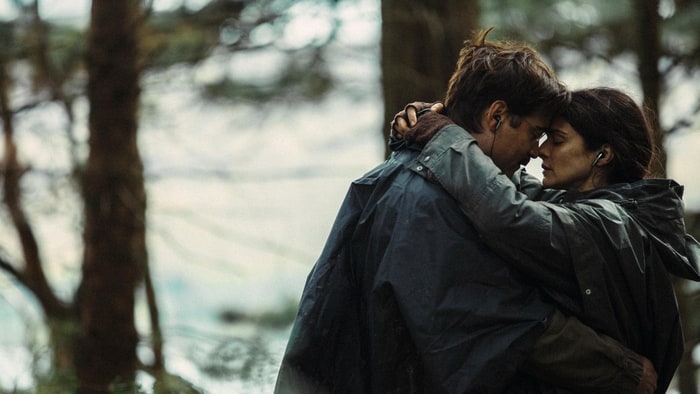
The Lobster is a dark comedy/drama set in a dystopian near future where single people are assigned to stay in The Hotel where there must find a mate of similar characteristics within 45 days. If they fail, they are transformed into an animal. Living in the woods is a group of people who refuse to take part in this society called The Loners. The single people of The Hotel take part in hunts where they chase and tranquilize The Loners and have days added to their stay in order to find a suitable mate equivalent to how many Loners they catch. The Loners are changed into animals.
Colin Farrell plays David, a recently divorced man banished to The Hotel to find a mate. He eventually decides to hitch himself to an extreme sociopath and lures in this woman with no feelings by faking a hilarious test she tests gives him. His possession of compassion is eventually uncovered by his new partner though after she presents him with another test by harming a loved one and seeing if he cracks. It is then that he escapes to the forest to be with The Loners, only to end up in the same predicament, just on the opposite side of the coin.
The Lobster is an interesting, multi-themed film that explores conformity/societal expectations, free will, and relationships. The totalitarian power structure in the film is an interesting subject considering the worldwide political trends of 2016. The Lobster is very much a critique of repressive rule. The atmosphere in The Hotel is stifling and rife with people desperate to do anything to find their match and fit into this society where being attached is paramount. Some of the lengths people go to are humorous but also sad when you take into consideration their circumstances. I also found it interesting that the film simply didn’t hold up the establishment for critique, but delved into the tendency of resistance movements to devolve into mirror images of the powers they seek to fight. When David joins The Loners, he is warned that the group tolerates no love or relationships or even flirting at all and will delve out dire consequences if it they are observed. This becomes a problem when he eventually falls in love with a fellow short sighted woman (Rachel Weisz). Their love blossoms and The Loner’s Leader (Léa Seydoux) goes to extreme lengths to stop them.
That David found himself on opposite ends of the fight over love in this society was an interesting statement on free will. My conclusion is that love is something that a person must come to on their own and on their own schedule. While the repressive establishment was wrong in forcing love on others under a restrictive time limit, whether they wanted it or not, The Loners’ complete shunning of the concept of love as a response was also repressive, just in a different way. And this is something that could be examined within the prism of our own times. I found it interesting that all of the actors here sported European accents given the low birth rates of many European countries as well as Japan. The problem is something that many of those governments are seeking to combat and this satirical look of where that could lead perhaps serves as a message. If these societal pressures to find someone “in time” with the “right characteristics” did not persist, perhaps this growing worldwide problem of an inability to connect with potential partners could be better combated. The environment within The Hotel had every tenant dressing in the exact same manner as others of their sex and people trying to find partners with the exact same physical characteristics, no matter how niche. This adherence to conformity left many people unfulfilled and unsure of themselves. Even in the end, when David is set to make a life altering choice to affirm his love for his fellow short sighted woman, he hesitates. Why must love require conformity and sameness (This critique is also prescient as our society embraces groupthink on an increasing basis). I loved how the movie touched on the fragility of love through the short sighted woman’s description of how she and David communicated in secret while in the presence of their fellow Loners:
“We would turn our heads to the left to say ‘I love you more than anything in the world’ and turn our heads to the right to say ‘Watch out, we’re in danger.’ We had to be very careful not to mix up ‘I love you more than anything in the world’ and ‘Watch out, we’re in danger.'”
That love and danger are so close and similar to each other does sum up what love is in reality, doesn’t it?
The Lobster is yet another thought provoking, quality film from the studio A24. The company currently has no equal, in my opinion, when it comes to producing stellar, engrossing, great cinema (although Disney’s box office totals and those that enjoy their children’s movies may disagree). I enjoyed its many themes and appreciate the thought and examination that they provoked around our own lives and the world we live in.
Image: A24

